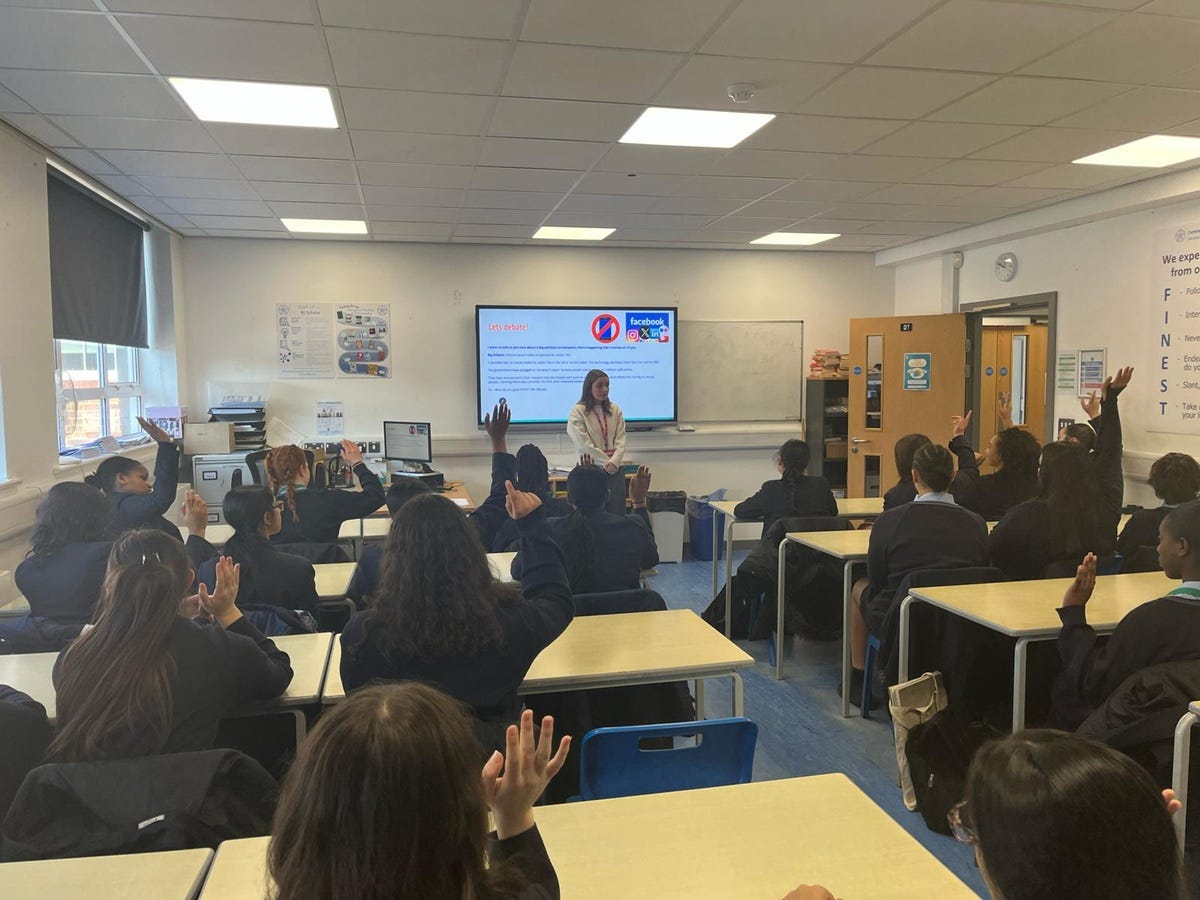Social media bans, dealing with boys online and a lack of community spaces. Life for 14-year-old girls right now.
When I asked if they were worried about how boys talk about them online, almost every hand in the room went up.
Who says journalists never get away from their desks anymore? Yesterday, I had the real pleasure of visiting a South London high school to talk about being a political journalist as part of their International Women’s Day programme.
At The Lead, we always aim to tell the stories that matter for peo…





